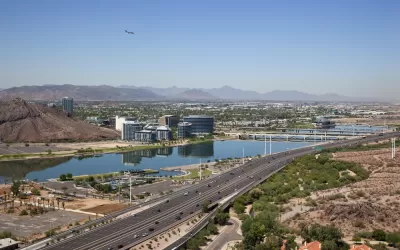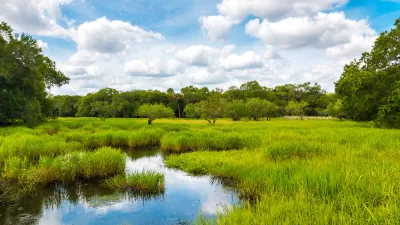To protect the state's water resources, Arizona's Department of Environmental Quality has drafted a new set of regulations aimed at replacing Clean Water Act provisions struck down by the Trump administration.

Changes made earlier this year to the federal Clean Water Act heavily curtailed the act's jurisdiction and removed protections for a variety of streams, creeks, and other ephemeral bodies of water. Ephemeral waters, defined as water sources that only flow after rain or snow rather than year-round, constitute an important source of water for desert states like Arizona. To ensure future protection of crucial water sources, the Arizona Department of Environmental Quality has proposed a new set of state regulations that would replace the outgoing federal regulations and continue to protect important waters within the state.
The proposed rules would essentially extend the old federal protections to the state level, shifting responsibility for enforcement from the EPA to the state. Otherwise, permit applicants for water-related uses can expect the same regulations as before, when the state relied on the Clean Water Act to protect its vital water sources. Although the Trump administration's changes may eventually be reversed as a result of lawsuits, Arizona hopes to create its own set of water protection regulations regardless of what happens at the federal level. The agency plans to introduce its suggested regulations in Arizona's next legislative session.
FULL STORY: State unveils draft legislation to create surface water protections

Maui's Vacation Rental Debate Turns Ugly
Verbal attacks, misinformation campaigns and fistfights plague a high-stakes debate to convert thousands of vacation rentals into long-term housing.

Planetizen Federal Action Tracker
A weekly monitor of how Trump’s orders and actions are impacting planners and planning in America.

Chicago’s Ghost Rails
Just beneath the surface of the modern city lie the remnants of its expansive early 20th-century streetcar system.

Bend, Oregon Zoning Reforms Prioritize Small-Scale Housing
The city altered its zoning code to allow multi-family housing and eliminated parking mandates citywide.

Amtrak Cutting Jobs, Funding to High-Speed Rail
The agency plans to cut 10 percent of its workforce and has confirmed it will not fund new high-speed rail projects.

LA Denies Basic Services to Unhoused Residents
The city has repeatedly failed to respond to requests for trash pickup at encampment sites, and eliminated a program that provided mobile showers and toilets.
Urban Design for Planners 1: Software Tools
This six-course series explores essential urban design concepts using open source software and equips planners with the tools they need to participate fully in the urban design process.
Planning for Universal Design
Learn the tools for implementing Universal Design in planning regulations.
planning NEXT
Appalachian Highlands Housing Partners
Mpact (founded as Rail~Volution)
City of Camden Redevelopment Agency
City of Astoria
City of Portland
City of Laramie





























